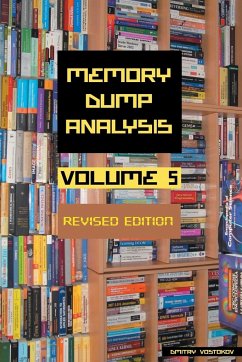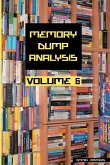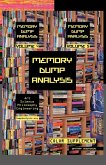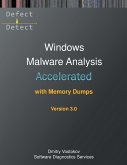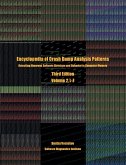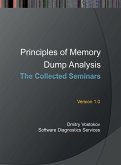This reference volume consists of revised, edited, cross-referenced, and thematically organized articles from Software Diagnostics Institute and Software Diagnostics Library (former Crash Dump Analysis blog) written in February 2010 - October 2010. In addition to various corrections, this major revision updates relevant links and removes obsolete references. Some articles are preserved for historical reasons. Most of the content, especially memory analysis and trace and log analysis pattern languages, is still relevant today and for the foreseeable future. Crash dump analysis pattern names are also corrected to reflect the continued expansion of the catalog. The fifth volume features: - 25 new crash dump analysis patterns; - 11 new pattern interaction case studies (including software tracing); - 16 new trace analysis patterns; - 7 structural memory patterns; - 4 modeling case studies for memory dump analysis patterns; - Discussion of 3 common analysis mistakes; - Malware analysis case study; - Computer independent architecture of crash analysis report service; - Expanded coverage of software narratology; - Metaphysical and theological implications of memory dump worldview; - More pictures of memory space and physicalist art; - Classification of memory visualization tools; - Memory visualization case studies; - Close reading of the stories of Sherlock Holmes: Dr. Watson's observational patterns; - Fully cross-referenced with Volumes 1 - 4. The primary audience for Memory Dump Analysis Anthology reference volumes is: software engineers developing and maintaining products on Windows platforms, technical support, escalation, and site reliability engineers dealing with complex software issues, quality assurance engineers testing software on Windows platforms, security and vulnerability researchers, reverse engineers, malware and memory forensics analysts. Trace and log analysis articles may be of interest to users of other platforms.
Hinweis: Dieser Artikel kann nur an eine deutsche Lieferadresse ausgeliefert werden.
Hinweis: Dieser Artikel kann nur an eine deutsche Lieferadresse ausgeliefert werden.

